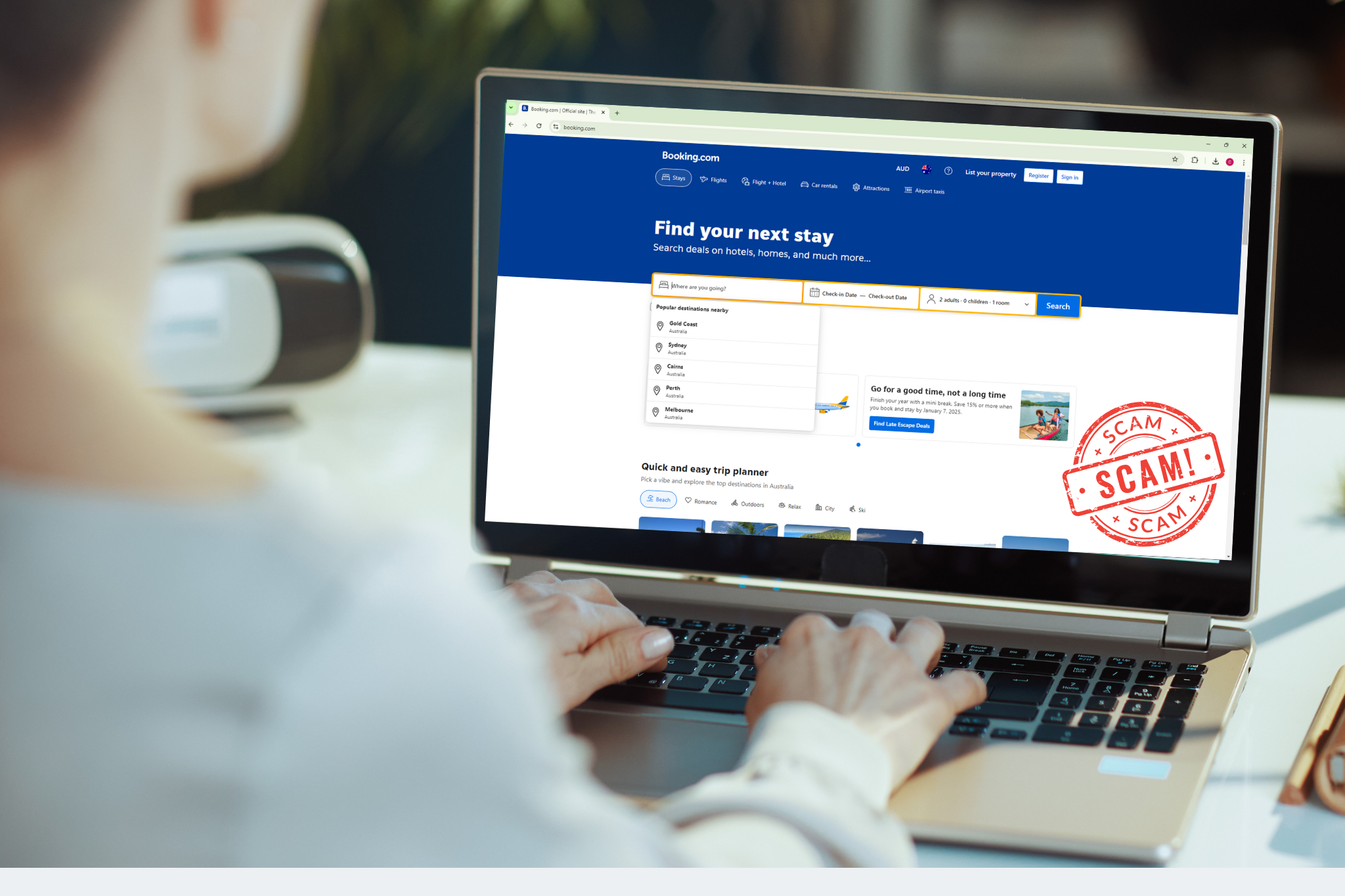
Protect yourself from scams on Booking.com
Last updated on March 17th, 2025
As the most visited travel site in the world, it’s not surprising that scams on Booking.com are also on the rise.
While the site itself is genuine and used without issue by millions of people worldwide – there were more than 640 million visits in August alone – scammers find many ways to work around the system.
One of those is by creating fake listings. On four different occasions in July, Katie and Rob had to turn away people who thought they were about to enjoy a break at their Sunshine Coast property. The new arrivals believed they had reserved their holiday via Booking.com but the property is not listed with the accommodation site.

Scams on Booking.com are rising because we are so accustomed to handing over our credit card information and other personal details when booking travel or accommodation.
Katie and Rob also found it difficult to report the fake listings because they did not have an account with Booking.com.
With the platform often criticised for its slow response to Booking.com scams, it is important for consumers to do as much as they can to protect themselves.
Tips to avoid Booking.com scams
It can be difficult to spot scammers but there are some practical steps you can take to ensure you are less at risk.
Don't skim important messages, especially those involving money. Scammers prey on our busy lives and hope we'll rush through emails or messages (such as booking com scam emails that are missing that important fullstop). Take a moment to carefully read any communication that requests financial information or asks you to click on a link.
Look for red flags in emails or messages, such as urgency, bad grammar, and generic greetings.
Verify sender information. Legitimate communication will come from email addresses with the domain name (eg: @booking.com) with a bracket at the end). Don't trust unfamiliar email addresses, such as ones ending with ‘booking com’, or phone numbers.
Be wary of verification emails. There has also been a spate of Booking.com verification email spam. Scammers get hold of your email from another source and use the verification email in the hope you will click on it, giving them access to your account.
Hover over links before clicking to see if the actual address matches the displayed text. Never enter personal information on websites reached through links in emails or messages. Instead, type in the site on your browser and check it is legitimate.
Confirm a message's authenticity. If it claims to be from a hotel you booked with, call the property directly using a phone number found on their website (not the one in the message).

If possible, enable two-factor authentication on your account for an extra layer of security. This requires a code from your phone and your password when logging in, making it harder for scammers to breach.
Before booking, read reviews from trusted sources and check the property's website for contact information.
Be wary of unbelievable deals. If a price seems too good to be true, it probably is. Do your research to get a sense of average pricing for the location and type of accommodation.
Use a credit card, as it typically offers better fraud protection compared with debit cards. Consider using a credit card with travel insurance benefits.
Avoid sending money through wire transfers, as these transactions are often difficult to reverse if something goes wrong.
Need help to address scams on Booking.com?
If you have been scammed and aren’t getting the assistance needed to either report the scam to the platform or ensure your details are not further compromised, lodge a complaint with us. We are here to help.






